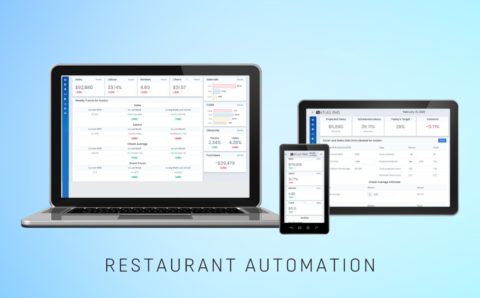
Django is a high-level Python web-based framework that is created to accelerate development and achieve a smooth and usable design. Being invented in 2003, this framework has since become one of the most sought-after web frameworks globally, serving as a foundation for large-scale popular web platforms. It provides a solid base for implementing web applications in a fast and secure way.
This framework’s popularity stems from its robustness as well as the ability to process complex web applications. Django is used for many popular software products like Instagram, Pinterest, Disqus, Bitbucket, and Mozilla.
Numerous benefits of Django for backend development have resulted in its active usage among businesses. 85.704 websites use this framework, according to WebTechSurvey.
Table of Contents:
Advantages of Django for Backend
Offering plenty of value, Django as a backend instrument has become a truly attractive option for developers facilitating building complex solutions..
Simplicity and Transparency
Simplicity and transparency are the primary features of Django that developers enjoy. The framework is built to be easy to use and accelerate the software implementation process. The straightforward tools it offers help build a clear and concise code structure, streamlining its navigation and modification. Django offers an absolute set of components and libraries, also called “batteries,” that address many common requirements in web development. They incorporate fields like database management, authentication, security, form handling, and administration interfaces. Having such a functionality incorporated, the framework simplifies the entire backend development flow and lessens the need for integrating and configuring third-party libraries, while the MVC backend with Django helps developers organize the code and divide it into logical components.
Django’s transparency is also reflected in its in-depth documentation. It comprises a broad spectrum of auxiliary resources and material, including tutorials and illustrations, that come in handy in case any challenges during the development arise. The immense ecosystem of reusable packages and extensions optimizes the backend development process. Applying pre-built solutions to common functionality development, you can substantially boost the product creation speed using Django as a backend.
Support & Community
The framework has a vast community of enthusiastic and creative developers who contribute to its development and maintenance. As a result, Django is constantly evolving and improving, with new features and enhancements being added regularly. Software engineers actively share their experiences, best practices, code snippets, and tutorials through blog posts, documentation, and open-source projects. This wealth of shared knowledge and resources benefits developers by providing insights, guidance, and ready-made solutions to common problems. Developers can leverage the community’s expertise to learn how to create backend with Django, new techniques, improve their skills, and build better applications. Having assistance from a supportive community can significantly reduce the learning curve and troubleshooting time, and help overcome obstacles within development.
Scalability
Django is also highly scalable, making it a perfect fit for projects of diverse scales. Creating a backend with Django is a great way to guarantee that your solution will be able to handle the growing traffic loads, which is a must for enterprise-level projects.
Django offers built-in scalability features, such as a robust ORM (Obj,,,ect-Relational Mapping) system, caching, and load balancing. ORM simplifies database management and allows working with databases utilizing Python objects and methods. The ORM abstracts the underlying database operations, making it easier to switch between different database backends. What is more, Django supports connection pooling, which provides for efficient management of database connections and boosts performance, especially in high-traffic scenarios. Caching can significantly cut down the response time and ameliorate the load on the database, which makes Django as backend scale a reasonable option. The framework supports multiple cache backends, such as in-memory caches or distributed caches like Memcached and Redis, providing options to streamline caching based on your application’s needs. Thus, Django backend development procures the ability to handle high levels of traffic and data without slowing down.
Security
Backend web development should put security first, and Django offers suitable features for this priority. It addresses common web safety attacks and vulnerabilities, such as Cross-Site Scripting (XSS), Cross-Site Request Forgery (CSRF), and SQL injection. With Django, developers can automate security measures’ usage, such as output escaping, CSRF tokens, and parameterized queries, to avoid these types of attacks. Consequently, developers use Django as backend creation tool to reduce the probability of having security vulnerabilities in the application and follow the most robust secure coding practices.
Performance
Django is highly performant, making it an excellent choice for web applications that require fast response and low latency. The framework has a highly optimized code structure,has embedded caching and load-balancing features to improve performance.
Additionally, Django can be easily integrated with other high-performance tools and technologies, such as Memcached and Redis, to further enhance performance. What is more, Django’s middleware system allows you to customize the request/response processing pipeline. You can add middleware components to perform tasks such as authentication, request/response manipulation, and caching. Each subsequent middleware in the queue can use the functionality added by the previous ones. Such a proper ordering can optimize the middleware stack, minimize overhead, and improve performance by efficiently handling common tasks that occur during the request/response cycle.
Suitable for any web project
Django is highly versatile, so it can be used for building a wide range of web applications, from plain blogs to sophisticated enterprise-level systems. It provides a high-level, feature-rich framework with built-in components and conventions, allowing developers to focus on the application’s core logic rather than dealing with repetitive tasks. It includes a built-in admin interface, form handling, URL routing, and database abstraction that significantly accelerate the backend development time. The modular design of Django guarantees high flexibility, which allows developers to extend or modify the functionality as needed. Modularity also allows for reusing code and building web applications efficiently.
Authentication support
Django offers excellent support for authentication and authorization, making it easy to build secure web applications. Django’s custom authentication system enables developers to create custom authentication backends and user models as required. The framework comprises user authentication features, such as:
-
- Password hashing,
- Session management,
- User permissions access management,
- Support for third-party authentication providers, like OAuth and Google Sign-In,
- They help ensure that web applications are safe and protected against unauthorized access,
Backward compatibility
Finally, with Django you achieve smooth backward compatibility, simplifying the process required to upgrade to newer versions of the framework without breaking the code. Moreover, the framework follows strict versioning policies and offers clear documentation on how to upgrade from one version to another.
Backward compatibility is important, as it helps developers ensure that web applications created with Django remain compatible with future versions of the framework, decreasing the need for frequent code updates and maintenance.
Need a Reliable Backend for Your Project?
Unlock the full potential of Django with expert development services. Contact PLANEKS to discuss your project.
Disadvantages of Django for backend
While Django offers many advantages for backend development, it also has some potential drawbacks that you should consider when choosing it as a framework for your project. In this section, we’ll clarify the disadvantages that may arise in case you use Django as backend.
Too many features for small projects
The framework offers many features and functionalities which may not be necessary for small projects. Such a feature-rich nature is the best fit for medium, complex, and large-scale web products development. Thus, it can introduce unnecessary excessiveness when working on smaller projects that won’t scale in the future.
Monolithic concept
Another potential disadvantage of Django is its monolithic concept. Django is designed as a single, all-inclusive framework, which can make it challenging to replace the components of the framework with alternative libraries. Besides, some elements of the functionality within the framework may be excessive and unnecessary. Still, these characteristics may be beneficial, since it is determined by the project requirements.
Node.js vs Django
Node.js is another popular option for the backend implementation within the software engineering sector, which results in frequent compares of this framework with Django. When it comes to choosing between Node.js and Django for backend development, the decision often depends on the specific needs of the project. Node.js is recommended for its high-performance, event-driven architecture, which is the ideal option for real-time applications, such as chat applications or gaming platforms. Still, Django is more focused on rapid implementation and excellent scalability, which is a solid choice for complex and enterprise-level projects.
Django vs PHP
PHP is another framework that has gained widespread adoption in the web development community due to its flexibility, scalability, and ease of use, making the comparison of Django and PHP a common one in the context of backend web development. Collating Django and PHP, the second option is known for its simplicity and ease of use, making it an excellent choice for small to medium-sized web applications. Django, in this case, wins in terms of scalability and security features over PHP. Ultimately, the same in the previous case, the choice between Django and PHP will be determined according to the outlined and formed needs of the individual case.
Calculating Your Django Investment?
Understand the factors that influence the cost of building with Django. Our detailed guide can help.
FAQ
Is Django used for frontend or backend?
Django is primarily used for backend development. It’s a popular web framework that is used to build complex, data-driven web applications. Still, Django can be used for frontend development, despite it’s not its main focus. It provides a Template Engine to work with the frontend, allowing to create dynamic HTML pages by integrating data from the backend and controlling the display logic.
Is Django enough for backend?
Django is more than enough for backend development, as it’s a powerful and flexible web framework that gives a wide range of functionalities and features into the developers’ hands for building complex web applications. Django’s broad choice of features, such as ORM, templates, and authentication support, allows designing of robust backend systems.
Is Django good for backend?
Django is an excellent choice for backend development. Its clarity and simplicity in use, scalability, and reliable security motivate more and more businesses to create web products using this framework. In addition, Django has a huge engaged community of developers as well as extensive documentation, assisting software engineers in the backend web development.
If you’re considering designing a robust and scalable backend system for your web application, then Django is an excellent option. The wide choice of features and opportunities this framework offers can be beneficial for even more complex ideas, smoothly taking them to reality. So, why not give Django a try in your next project and see how it can skyrocket your backend web development flow?
PLANEKS is the team of experienced developers with extensive knowledge and expertise in providing Django development services, delivering high-performant, sophisticated, and reliable software products. We will eagerly help you take your project from the idea formation to the real digital environment, making use of the power and solidity of Django. We are ready to ensure you with a broad spectrum of services, from a custom backend system creation, a complex web-based solution, or a high-performance API – our qualified software engineers have the relevant skills and proficiency in delivering fruitful results that meet your requirements.

MusicTeam
Our collaboration with MusicTeam led to a successful v1 launch, helping artists manage metadata efficiently and securing a key cultural grant.

Elaborate
Elaborate’s platform simplifies lab results with automated alerts, data summaries, and patient education, improving overall health management.

Restaurant Management
Comprehensive management tool that integrates multiple data sources, enhancing profitability through improved operational insights.
Contact us today to schedule a consultation and discover the strategies for maximizing the quality of your product with the help of Django in the hands of PLANEKS professionals.

